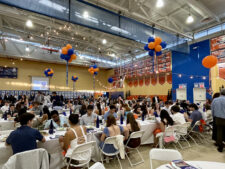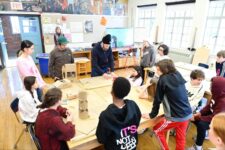At Ethical Culture Fieldston School, ethics anchors students’ exploration of every subject, providing the framework and knowledge necessary to live an ethical life. Fieldston Lower 5th Graders’ most recent inquiry is through their dystopian fiction writing workshop, where they evaluate the role that community plays in a rapidly evolving society.
“5th Grade is a big leap for students’ ability to grapple with more challenging topics as they develop greater nuance in their understanding of the world around them,” says 5th Grade Teacher Dani Cardia. “Throughout their curriculum, the students consider how communities function and the ways in which people create change when their community’s needs are not being met.”
One goal for this creative writing project is to allow students to think critically about social issues they see in our world. Through creative writing, they can approach these challenging topics with imaginative solutions.
Students were tasked with writing their own dystopian fiction as a way to engage with ethical dilemmas they may encounter in their own lives. “One goal for this creative writing project is to allow students to think critically about social issues they see in our world,” Cardia says. “Through creative writing, they can approach these challenging topics with imaginative solutions.”
To begin the dystopian fiction unit, students read a sample narrative of the genre and identified the social issue present, who holds power in the story’s society, and what caused its dystopian future. They also found context clues providing the world’s backstory and physical setting. After researching and identifying what makes up the dystopian genre, the students began brainstorming their own stories, including determining an ethical issue they wanted to explore and crafting a compelling protagonist. As they developed their stories, 5th Graders explored topics ranging from loneliness to AI use. The dystopian fiction unit built upon creative writing skills that students had developed in previous grades, such as personal narratives and expository writing.
“We aim for students to develop their descriptive writing abilities and writing stamina,” Cardia says. “They must consider worldbuilding, narrative arc, and character development.”
“Dystopian fiction is a hard genre to write about,” says Quinn C. ’32. “Your world has to take place after an event in time. Maybe your world takes place after a robot war, and now AI rules the world. You need to figure out what it should be about and how your world came to be the way it is.”
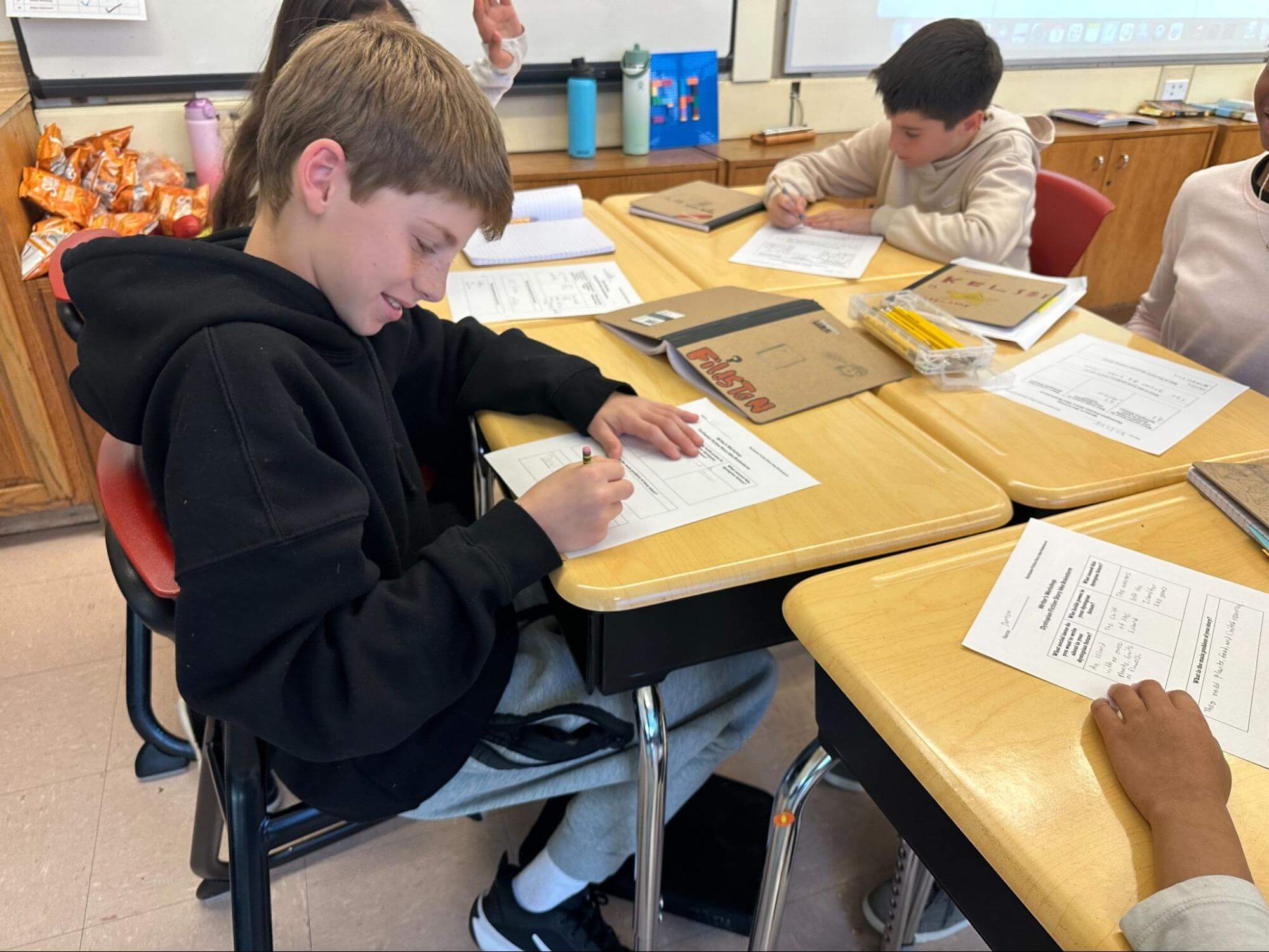
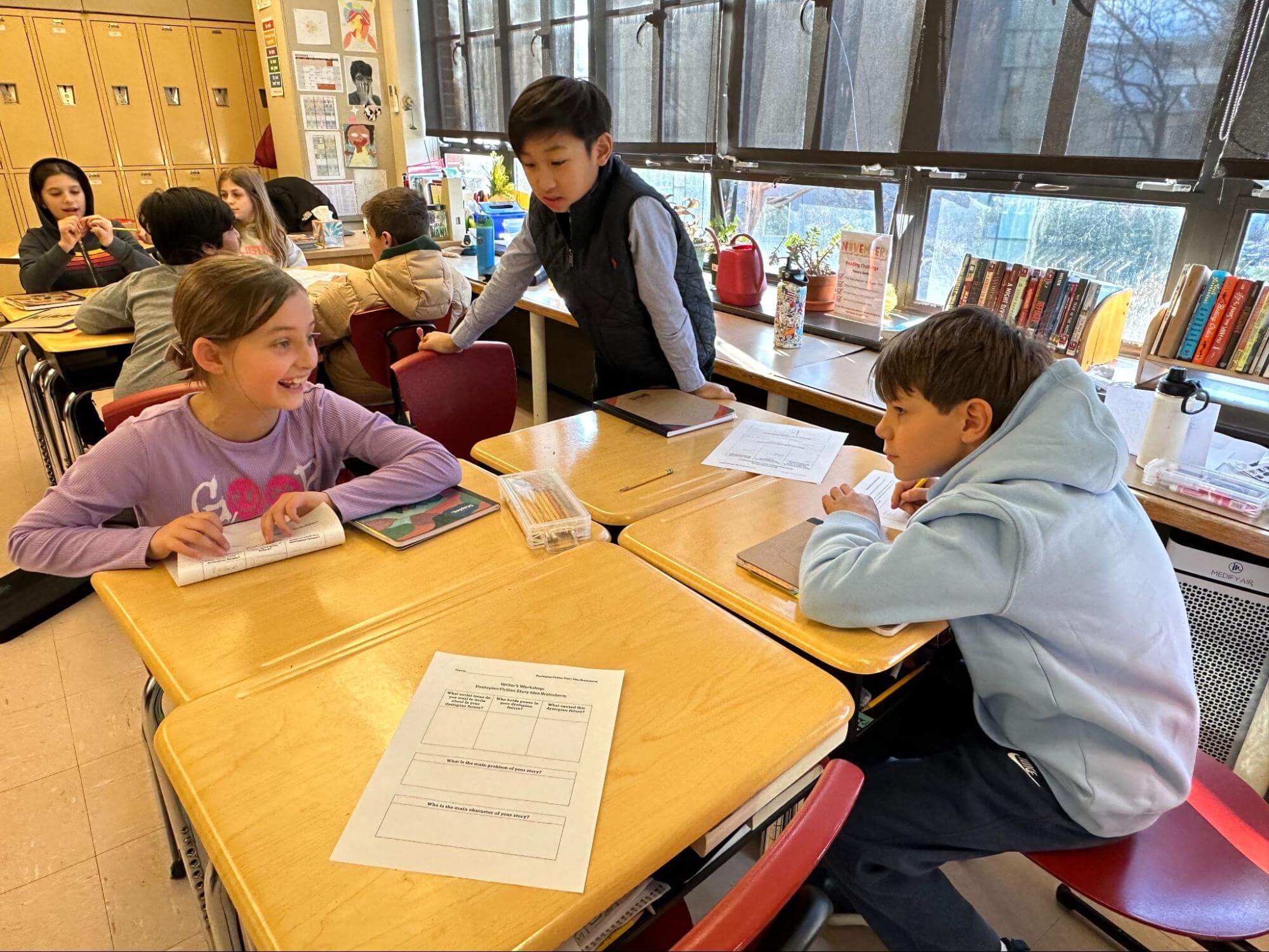
In an early brainstorming session, 5th Graders delighted in naming characters and concocting plot twists. As they fleshed out their stories, their worldbuilding inspired conversations on what makes an ethical society.
“Many ethical questions arose from this brainstorming, most often regarding the distribution of resources, environmental stewardship, wealth inequality, and censorship,” says Cardia. “The students were conscious of these in their own experiences and awareness of their world, and approaching these topics through the lens of creative writing allowed them to develop their own opinions on what a more just society should look like and how individuals may shape such a world.”
From mysterious time jumps to computers taking control, students crafted narratives inspired by their observations of the real world. “You can create new characters, make the setting what you want, and make the story about what you want it to be about,” says Ashis DK. ’32. “Also, you can show off what you have learned in class, and it is a great way to practice writing and enhance your vocabulary.”
At a celebratory publishing party, the 5th Graders shared their final stories, complete with self-designed covers, with peers and faculty. This experience sparked enthusiastic feedback about each other’s stories and discussions about their dystopian worlds.
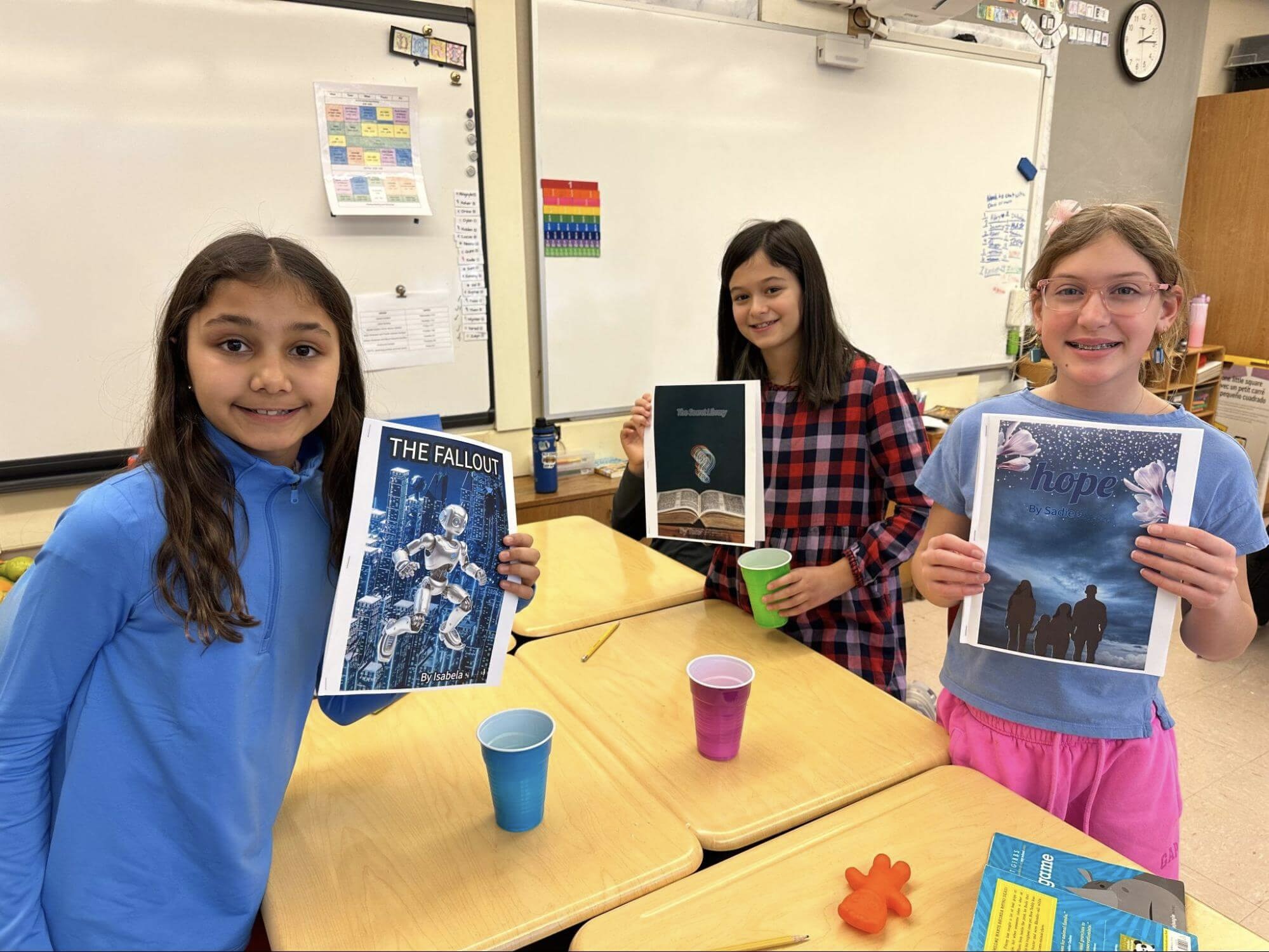
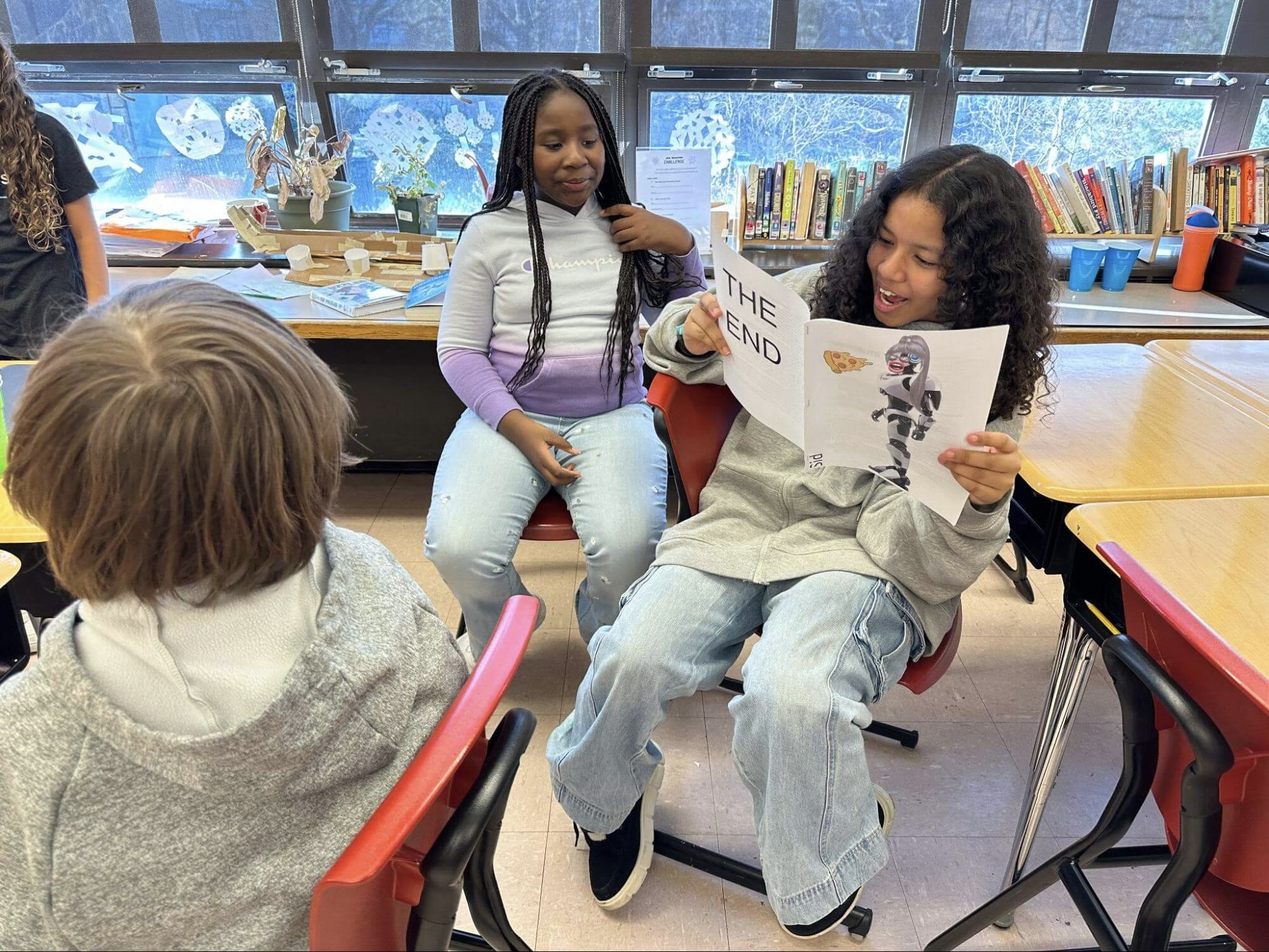
As students traveled between classrooms to read more, they offered each other recommendations, enjoyed plot twists, and celebrated their peers’ creativity. “It was cool to see everyone’s different ideas,” Sadie H. ’32 says. “It was also fun to see how everyone handled things like AI takeover and climate change that made the dystopia happen.”
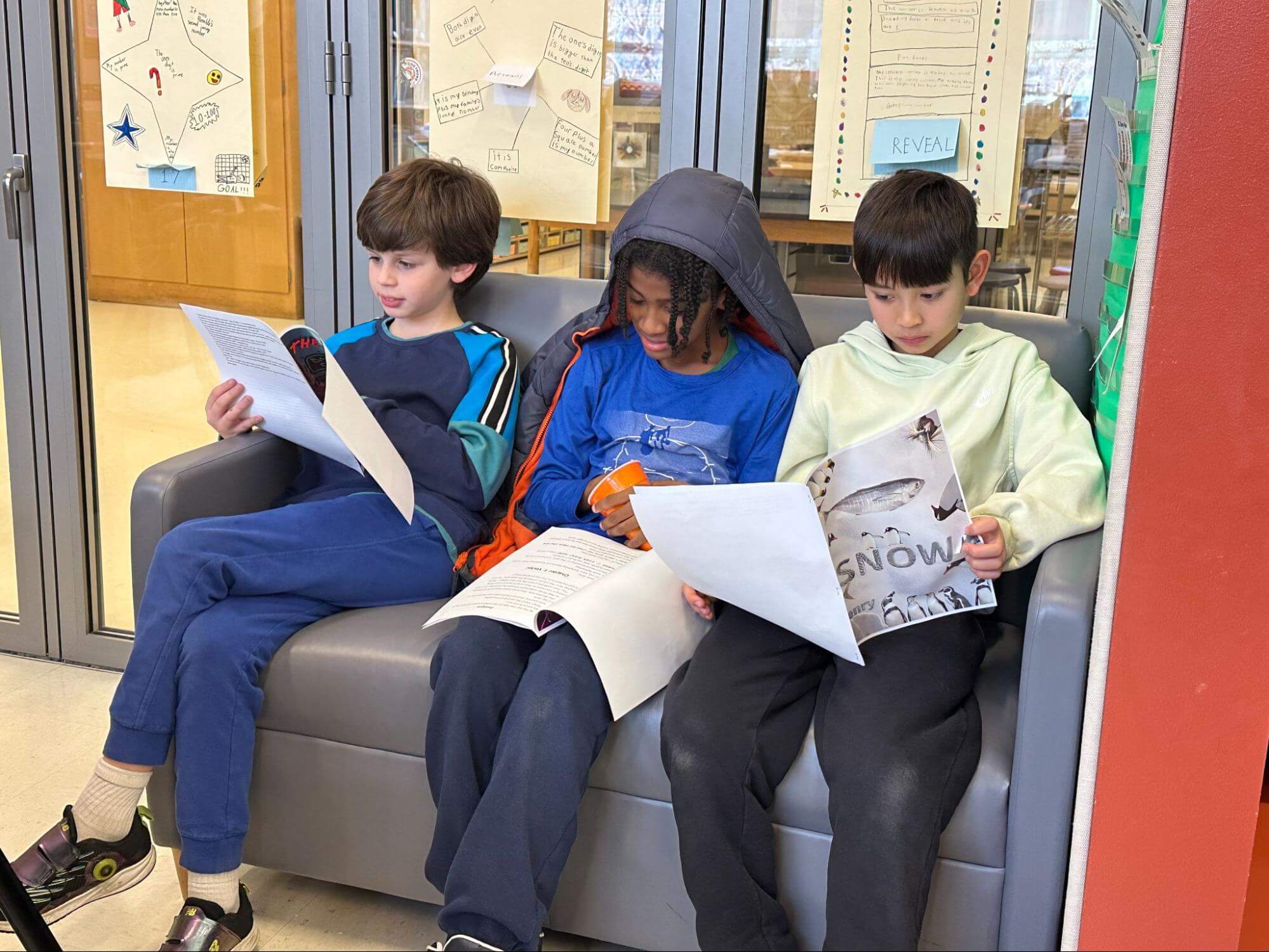
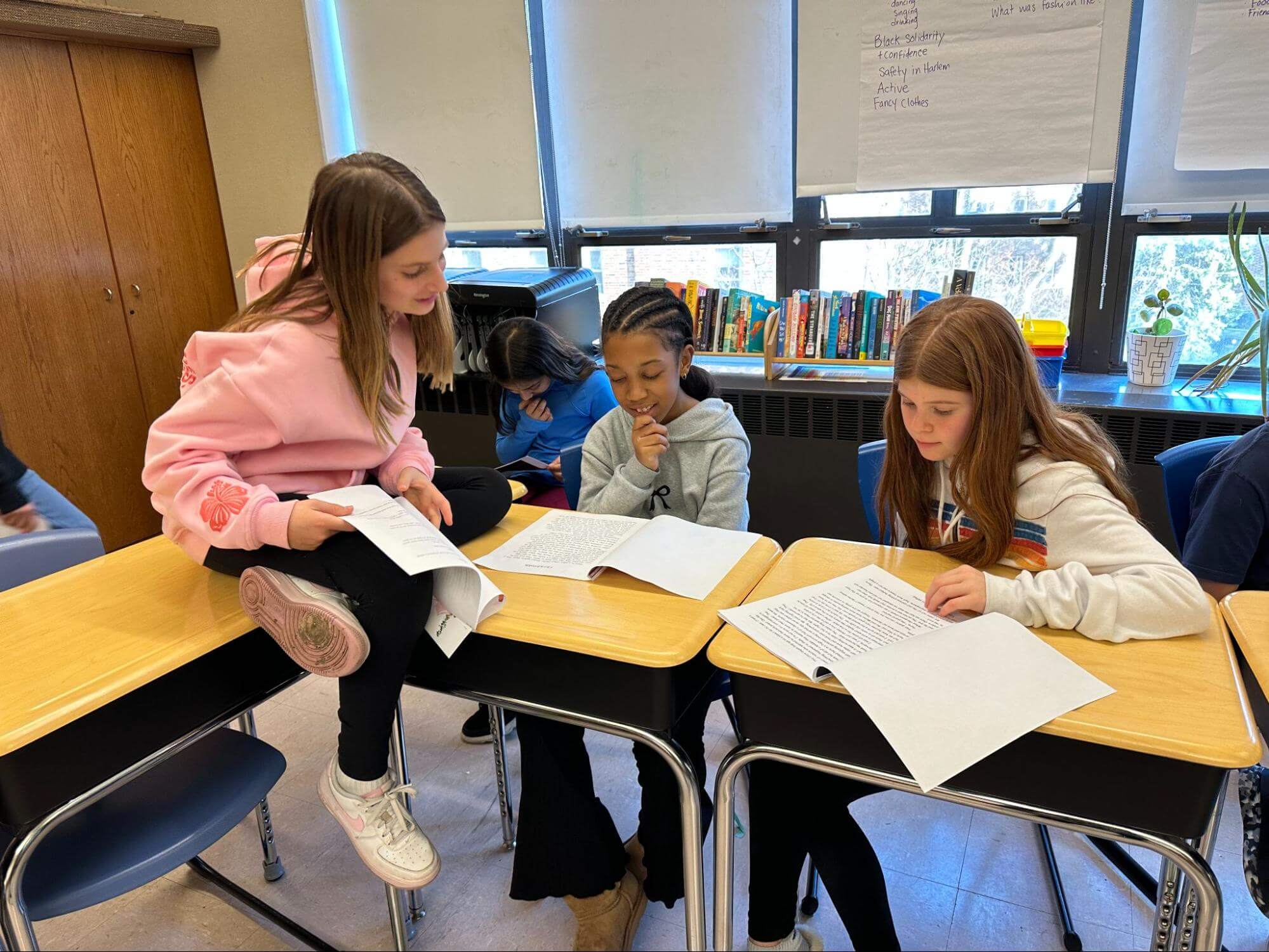
An ECFS education nurtures students’ capacity for morality and empathy, and writing assignments like the 5th Grade’s fiction work highlight how literature ultimately fosters this kind of connection and understanding.
